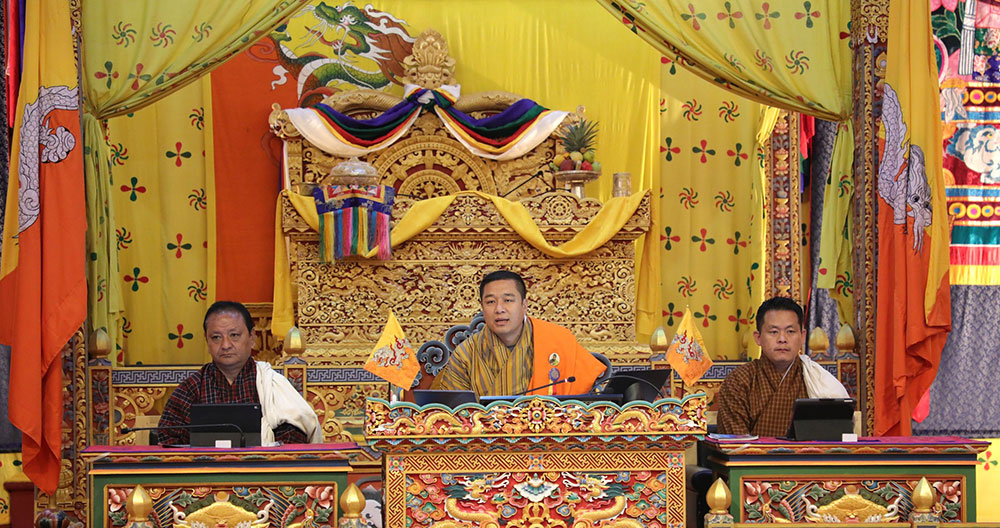YK Poudel
The National Council will deliberate on the ratification of the Convention on the Rights of Persons with Disabilities (CRPD) today. Foreign Minister Dr Tandi Dorji introduced the Convention in the House on October 4.
The minister, who is the member in-charge of the Convention, said that Bhutan initially signed the Convention in 2010 but it was left without ratification due to the absence of a dedicated institution responsible for overseeing the process.
“The purpose of the present Convention is to promote, protect and ensure the full and equal enjoyment of all human rights and fundamental freedoms by all persons with disabilities, and to promote respect for their inherent dignity,” he said.
The convention includes provisions on accessibility, participation, equality, employment, education, training, social protection, and health.
The National Assembly adopted the Convention with four reservations on Article 18—Liberty of Movement and Nationality, Article 23—Respect for Home and Family, Article 27—Work and Employment, and Article 29—Participation in Political and Public Life.
Lyonpo said that the reservations were recommended on these four Articles through a careful examination of the nation’s laws and meeting with various agencies involved with persons with disabilities (PWDs).
National Council members questioned the minister on the current challenges and the issues.
National Council Representative, Zhemgang, Tshering Tshomo, asked the minister regarding the absence of an optional protocol on the CRPD—which is there in many countries.
Dagana NC, Berindra Chimoria, said that the PWDs are not given equal opportunity in the areas that they are good at—the investment in supporting them is minimal.
“There are numerous PWDs who are good in sports, artisan and crafts, who can perform well in sports and even in employment, yet the opportunity is limited for them. If the banks could provide loans without interest for them, it would greatly support them,” he said.
Wangdue’s NC, Phub Dorji, said that there are about 84.5 percent of the PWDs who did not receive education opportunity. “The country has about 15,500 PWDs which accounts to two percent of the total population.”
The PWDs include those who have long-term physical, mental, intellectual or sensory impairments which in interaction with various barriers may hinder their full and effective participation in society on an equal basis with others.
The delay in ratifying the convention was attributed to concerns about the significant investments required to develop expertise and improve the current infrastructure to align with the convention’s standards. Budget constraints and infrastructure requirements were among the primary concerns expressed by members of the National Assembly in previous discussions on adopting the convention.
The CRPD prepared by the UN includes the principles: respect for inherent dignity, individual autonomy including the freedom to make one’s own choices, and independence of persons; non-discrimination; full and effective participation and inclusion in society; respect for difference and acceptance of persons with disabilities as part of human diversity and humanity; equality of opportunity; accessibility; and respect for the evolving capacities of children with disabilities and respect for the right of children with disabilities to preserve their identities.
Bhutan’s 2017 Population and Housing Census of Bhutan (PHCB) reveals a disability prevalence rate of 2.1 percent (15,567 persons). Of these, 47.9 percent (7,456) are male, and 52.1 percent (8,111) are female. While 80 percent or 12,512 of the disabled individuals live in rural areas, 20 percent (3,055) are in urban areas.
The CRPD for PWDs will be overseen by the Planning and Policy Division under the Prime Minister’s Office.
There are 50 articles agreed upon by state parties. As of date, there are 173 State Parties to the convention. Bhutan is the only SAARC country that has not ratified the convention.


